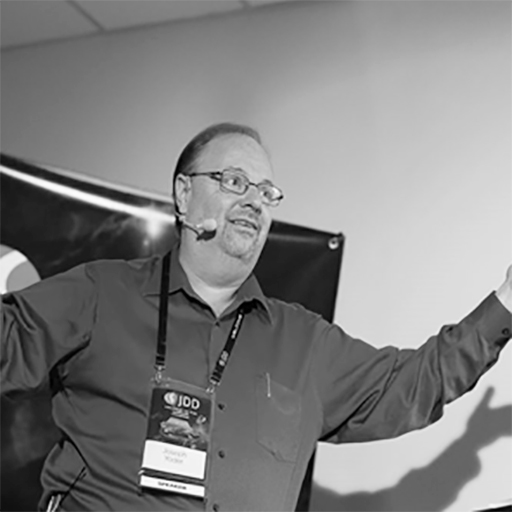- Login
- Deutsch
- Contact
- Newsletter

Conference Program
Please note:
On this page you will only see the English-language presentations of the conference. You can find all conference sessions, including the German speaking ones, here.
The times given in the conference program of OOP 2023 Munich correspond to Central European Time (CET).
By clicking on "VORTRAG MERKEN" within the lecture descriptions you can arrange your own schedule. You can view your schedule at any time using the icon in the upper right corner.
Domain Modeling Techniques for Designing Microservices
Many have suggested using DDD to help define the functional scope of microservices. But how to apply this idea in practice is not clear to everyone. This talk will cover basic DDD concepts, and we'll discuss why and how DDD can help to create microservices with better autonomy, scalability, and reliability. Using examples, we'll navigate from a domain model to the design of both synchronous (REST-based) and asynchronous (reactive) microservices.
Target Audience: Architects, Developers, PM's, QA
Prerequisites: Understanding of Microservices and DDD is useful
Level: Advanced
Extended Abstract:
Many have suggested that DDD modeling techniques can help define the functional scope of microservices. But how to apply this idea *in practice* is not clear to everyone. DDD is NOT an approach to microservice design. However, DDD can help with some aspects of microservice design. DDD has had a resurgence with the advent of Microservices, specifically as it can help you design the right-sized microservices modeled around the domain.
This talk will examine how to take the results of domain modeling (specifically Domain-Driven Design) and map them to a microservices implementation for systems with better availability, scalability, reliability, and modifiability. This will include examples for the design of both synchronous (REST-based) and asynchronous (reactive) microservices. I will also explore various microservice design scenarios around DDD concepts such as aggregates (with entities and value objects), bounded contexts, domain events, anti-corruption layer, and various strategies for Bounded Context interactions.
Joseph (Joe) Yoder is president of the Hillside Group and principal of The Refactory. He is best known as an author of the Big Ball of Mud pattern, illuminating fallacies in software architecture. Joe teaches and mentors developers on agile and lean practices, architecture, flexible systems, clean design, patterns, refactoring, and testing. Joe has presented many tutorials and talks, arranged workshops, given keynotes, and help organized leading international agile and technical conferences.

